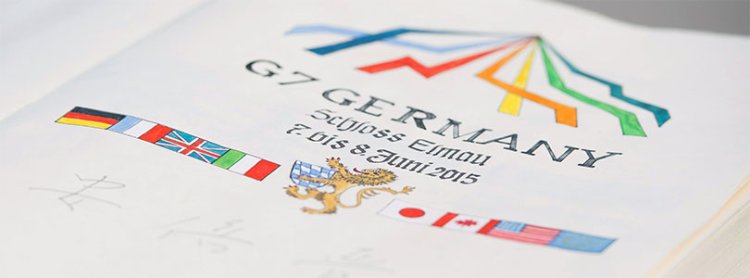Sharan Burrow, ITUC General Secretary, said: “Chancellor Merkel, as Summit host, has shown clear leadership on a number of crucial issues, notably the promise for G7 action on global supply chains which today are a source of exploitation and impoverishment instead of a means of delivering decent, secure and safe jobs.
Strengthening the existing international mechanisms on corporate behaviour needs to be backed up by the rule of law. This, along with other key commitments on climate action and financing as well as on taxation and on increasing women’s participation, must be taken up by the G20 when it holds its Summit in November.”
An ITUC opinion poll on trust in companies and supply chains, released on the eve of the Summit, found that:
- 55 % of respondents in France, Germany, the UK and the US believe most global companies can’t be trusted to look after their workers and tougher laws are needed;
- 80 % of respondents in Indonesia, the Philippines and Turkey believe that most employers prioritise profits over safety of their workers;
- More than three quarters (78 %) of people in Indonesia, the Philippines and Turkey believe that business should pay all their workers a decent minimum wage – no matter where they are.
Commenting on the launch of a “Vision Zero Fund” with the ILO, John Evans, General Secretary of OECD TUAC and ITUC Chief Economist said: "The G7 leaders have acknowledged responsibility to promote decent working conditions in developing countries. The final funding of the Rana Plaza was long overdue for the families of the victims – but commitment must now be used to stop such tragedies from ever happening again. The Summit pledges must be turned into action, both to set up the Vision Zero Fund but also to ensure that the OECD Guidelines on Multinational Enterprises are strengthened. The G7 is raising the bar to make sure that the process to strengthen the key mechanism of the Guidelines, the work of the ‘National Contact Points’, is a broad-based effective implementation process, with real consequences for those who don’t observe the Guidelines."
Amongst a raft of other issues, the Summit recognised that the task of global financial reform is still unfinished, and that unemployment remains too high. The commitments to strong, inclusive growth and investment, especially in infrastructure, have been welcomed by the trade unions.
“This G7 Summit has made advances on a range of crucial questions. These need to be broadened to engage other countries, and turned into concrete action.
Governments need to rebuild public confidence in their willingness to tame corporate greed, assert the rule of law and put the world economy on the right track – one that works for people instead of just for the most wealthy and powerful,” said Burrow.


